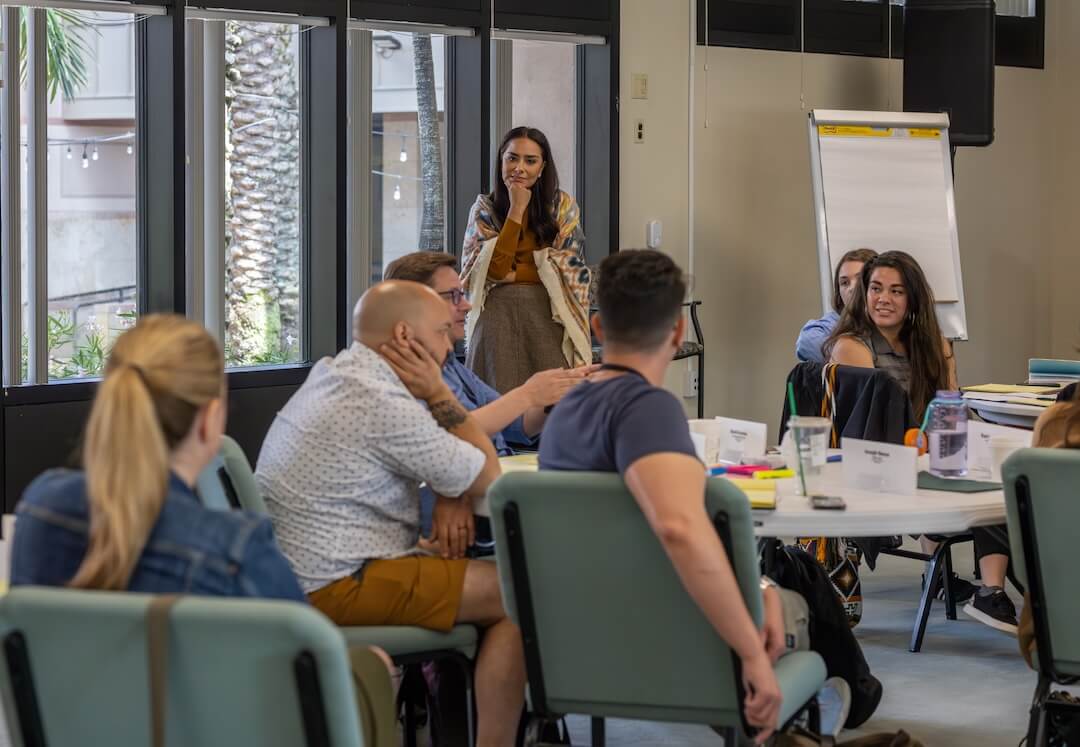What do you do when you see something online that looks suspect?
Maybe it’s a tweet claiming Drake gave two McDonald’s employees a $10,000 tip.
According to @imajnoel, Drake pulled up to a @McDonalds and gave two employees $10K.
God’s plan ? pic.twitter.com/bFqWp2tiOL
— Complex Music (@ComplexMusic) January 30, 2019
Or a photo of train tracks on fire in Chicago?
Chicago is so cold right now that they have to literally set railroad tracks on fire to warm them up so they don’t crack or cause trains to crash, and so they can do repairs. pic.twitter.com/R5Br9Cj26g
— Rapture (@TheRapture_) January 30, 2019
Or, maybe it’s a #10YearChallenge post about the Arctic ice caps melting.
Whatever the post may be, could you figure out if it was legit, and explain how you got there?
For the last eight weeks, MediaWise’s teen fact-checkers have done exactly that. Eighteen students across the country have helped fact-check the internet by creating videos that focus on how you can debunk misinformation online.
For those who don’t know, the teen fact-checking network is a key component of the MediaWise initiative to help middle and high school students be smarter consumers of news and information online. It’s a partnership between Poynter, the Stanford History Education Group, and the Local Media Association, supported by the Google News Initiative with funding from Google.org.
[RELATED: What is MediaWise?]
The last eight weeks of teaching and coordinating 18 students online hasn’t always been easy.
It’s hard to wrangle 18 students who live in different time zones, all of whom are busy with responsibilities like school, extracurricular activities, and homework, but the fact-checkers are making it work.
Betsy Quimby from Harrisonburg, Virginia, said that this virtual experience, has prepared her for the future.
“I worked with people online rather than working in my class, which was a new challenge and I’m happy I got to have an experience like this for the future when I may have to work with people online only,” Quimby said.
By showing how they did their work, students help their peers learn skills they can utilize whenever they see something suspect on social media. And who better to reach teens than the teens themselves? This idea — showing rather than telling — is not a new one, and is one of the main goals of MediaWise’s teen fact-checking network.
“I think my teachings have made an impact on my peers, both because they’re more willing to listen to things other teenagers are saying, and because it’s a more accessible way to understand an important issue in today’s society,” said Taylor Fang, from Logan, Utah.
So what exactly are the teen fact-checkers teaching? Students have been engaging in a variety of strategies to help fact-check online information. One tool, a reverse Google image search, allows anyone with Google Chrome to see where an image has been posted online.
Let’s say you saw this tweet claiming that Chicago is “so cold right now that they have to literally set railroad tracks on fire.”
As Connor Schmaus, 18, from Lawrence, Kansas, explains in this video, this claim can be verified using a reverse Google image search:
When there is no image, the teen fact-checkers encouraged their peers to see what other reputable news sources are saying with a keyword search. This directs individuals to search words or phrases from the original post on Google.
This strategy was especially helpful when Complex Music tweeted that Drake gave two McDonald’s employees a $10,000 tip. As it turns out, that was not God’s plan. Drake really gave the employees $100 each:
And sometimes students have to use a combination of strategies to debunk a post. Like this example, where Madelyn Knight, 18, from Indianapolis used a reverse Google image search and a keyword search:
“I definitely know that my friends at school have started to notice posts that could be fake just because they know I am a part of MediaWise,” Knight said.
“I definitely get a feeling that what I am doing is important and meaningful.”
To see more fact-checks from students, follow us @MediaWise on Instagram, YouTube, Twitter and Facebook. And if you are a student interested in joining our teen fact-checking network, apply today. Applications are due March 8.


 FOLLOW us for more… – . . . . . Credit @astrogeekz ? #fact #facts #didyouknow #instafacts #science #scientist #dailyfacts #facts? #factz
FOLLOW us for more… – . . . . . Credit @astrogeekz ? #fact #facts #didyouknow #instafacts #science #scientist #dailyfacts #facts? #factz



